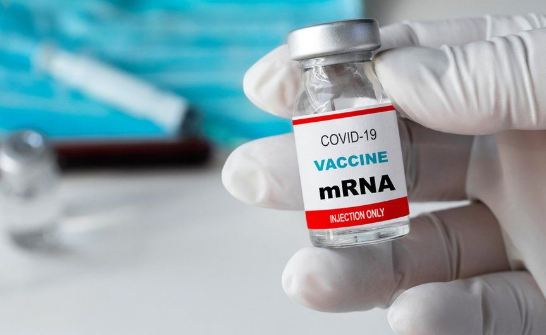DNA
Stockholm, OCT 2: Katalin Kariko and Drew Weissman won the Nobel Medicine Prize on Monday for work on messenger RNA (mRNA) technology that paved the way for groundbreaking COVID-19 vaccines.
The pair, who had been tipped as favourites, “contributed to the unprecedented rate of vaccine development during one of the greatest threats to human health in modern times,” the jury said.
In honouring the pair this year, the Nobel committee in Stockholm broke with its usual practice of honouring decades-old research.
While the prize-winning science dates back to 2005, the first vaccines to use the mRNA technology were those made by Pfizer/BioNTech and Moderna against Covid-19.
Kariko of Hungary and Weissman of the United States, longstanding colleagues at the University of Pennsylvania, have won a slew of awards for their research, including the prestigious Lasker Award in 2021, often seen as a precursor to the Nobel.
Unlike traditional vaccines which use a weakened virus or a key piece of the virus’ protein, mRNA vaccines provide the genetic molecules that tell cells what proteins to make, which simulates an infection and trains the immune system for when it encounters the real virus.
The idea was first demonstrated in 1990, but it wasn’t until the mid-2000s that Weissman and Kariko developed a technique to control a dangerous inflammatory response seen in animals exposed to these molecules, opening the way to develop safe human vaccines.
Kariko’s and Weissman’s mRNA technology is now being used to develop other treatments for diseases and illnesses such as cancer, influenza and heart failure.
The pair will receive their Nobel prize, consisting of a diploma, a gold medal and a $1 million cheque, from King Carl XVI Gustaf at a formal ceremony in Stockholm on December 10, the anniversary of the 1896 death of scientist Alfred Nobel who created the prizes in his last will and testament.
Last year, the Medicine Prize went to Swedish paleogeneticist Svante Paabo, who sequenced the genome of the Neanderthal and discovered the previously unknown hominin Denisova.
– Peace Prize to Iranian women? –
The Nobel season continues this week with the announcement of the winners of the Physics Prize on Tuesday and the Chemistry Prize on Wednesday.
They will be followed by the much-anticipated prizes for Literature on Thursday and Peace on Friday.
The Economics Prize winds things up on Monday, October 9.
The awards, first handed out in 1901, were created by Swedish inventor and philanthropist Alfred Nobel in his will to celebrate those who have “conferred the greatest benefit on mankind.”
Criticism over a lack of gender and geographical diversity has plagued the Nobels over the years.
US-based men have dominated the science fields, while women account for just six per cent of overall laureates — something the various award committees insist they are addressing.
Among the names making the rounds for Thursday’s Literature Prize are Russian author and outspoken Putin critic Lyudmila Ulitskaya, Chinese avant-garde writer Can Xue, British author Salman Rushdie, Caribbean-American writer Jamaica Kincaid and Norwegian playwright Jon Fosse.
But for the Peace Prize, experts have been scratching their heads over possible winners, as conflicts rage around the globe.
Some have pointed to the Iranian women protesting since the death in custody a year ago of Mahsa Amini, arrested for violating Iran’s strict dress code imposed on women.
Others suggest organisations documenting war crimes in Ukraine, or the International Criminal Court, which could one day be called upon to judge them.
“I think that climate change is a really good focus for the Peace Prize this year,” Dan Smith, the head of the Stockholm International Peace Research Institute, told AFP after a year of extreme weather around the world.
For Tuesday’s Physics Prize, twisted graphene or the IceCube Neutrino Observatory in Antarctica have been seen as possible winners, as well as the development of high-density data storage in the field of spintronics.












